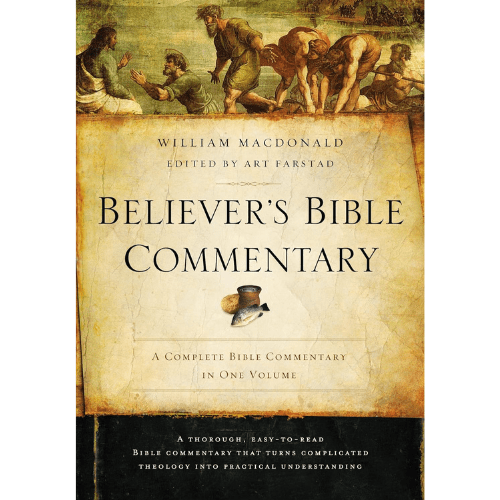What does it mean for Christ to be supreme over all creation and sufficient for every aspect of our salvation? The book of Colossians offers profound answers, unveiling Jesus Christ as the visible image of the invisible God and the head of His church. Written by the apostle Paul during his imprisonment, this epistle challenges believers to reject false teachings and embrace a life fully rooted in Christ.
Colossians is a powerful reminder of the transforming hope found in Christ’s supremacy. It calls us to put off our old selves and live in the fullness of our new life in Him. Through its timeless truths, we are equipped to grow in wisdom, walk in unity, and stand firm in faith.
Whether confronting heresies or providing practical guidance for daily living, Colossians exalts Christ as preeminent in all things. This outline will guide you through its key themes, rich theology, and practical applications, inviting you to experience the abundant life found only in Jesus.
Writer of Colossians
The apostle Paul is identified as the writer of Colossians in the opening verses (Colossians 1:1). Known for his missionary zeal and theological depth, Paul wrote this letter under the inspiration of the Holy Spirit while imprisoned in Rome around AD 60-62. Paul’s authorship is further supported by his personal references, such as his relationship with Epaphras, the likely founder of the Colossian church (Colossians 1:7-8; 4:12-13).
As a former Pharisee who once persecuted Christians, Paul’s dramatic conversion on the road to Damascus profoundly shaped his ministry. His deep understanding of both Jewish law and Gentile culture uniquely equipped him to address the challenges faced by the Colossian church.
In Colossians, Paul’s tone is pastoral and authoritative as he defends the supremacy of Christ against false teachings infiltrating the church. His writing reflects a heart committed to nurturing spiritual growth, encouraging believers to live in the fullness of their new life in Christ. This letter remains a testament to Paul’s dedication to advancing the gospel.
Date Written
The book of Colossians was written around AD 60-62 during the apostle Paul’s first imprisonment in Rome. This time frame is supported by internal evidence and the broader context of Paul’s ministry. Colossians is considered one of the “Prison Epistles,” along with Ephesians, Philippians, and Philemon, all written during this period (Colossians 4:3, 10, 18).
Acts 28:16-31 provides a glimpse into Paul’s circumstances, where he lived under house arrest but continued to preach and write freely. During his imprisonment, Paul received news from Epaphras, a leader in the Colossian church, about the congregation’s faith and the challenges they faced (Colossians 1:7-8; 4:12).
This timeline aligns with the growth of the early church and the rise of heresies, such as Gnosticism and legalism, which Paul directly addresses in Colossians. Writing from prison, Paul emphasizes Christ’s supremacy and sufficiency, offering believers timeless encouragement to remain steadfast in their faith despite external pressures and false teachings. The date underscores the historical and theological significance of this epistle.
To Whom Written
The book of Colossians was written to the church in Colossae, a small but culturally diverse city in Asia Minor, located near Laodicea and Hierapolis. Colossae was once a thriving center for trade but had diminished in prominence by the time of Paul’s writing. Despite its size, the church in Colossae held significant importance as a beacon of faith in a region influenced by various religious and philosophical ideas.
Paul had not personally visited the Colossian church (Colossians 2:1), but it was likely founded by Epaphras, a fellow laborer in the gospel and a native of Colossae (Colossians 1:7-8; 4:12-13). The congregation included both Jewish and Gentile believers, reflecting the city’s diverse population.
Paul’s letter addresses not only the Colossians but also believers in the surrounding region influenced by its teachings. He wrote to encourage their faith, combat false doctrines infiltrating the church, and remind them of Christ’s supremacy. The message continues to inspire believers worldwide, emphasizing unity and spiritual growth in Christ.
Purpose of Colossians
The primary purpose of Colossians was to address false teachings threatening the church in Colossae. These heresies, a mix of early Gnosticism, Jewish legalism, and mysticism, sought to undermine the gospel by devaluing Christ’s role as the supreme and sufficient Savior. Paul wrote to refute these distortions, emphasizing Christ’s preeminence over all creation and His complete work of salvation (Colossians 1:15-20; 2:9-10).
Paul also aimed to encourage the people in their spiritual walk. He reminded them to remain steadfast in faith, rooted in the truth of the gospel (Colossians 1:23; 2:6-7). By highlighting Christ as the head of the church and the source of all wisdom, Paul called believers to reject false philosophies and embrace their identity in Him.
Furthermore, Colossians provides practical instructions for godly living. Paul urged believers to put off their old ways and live in unity, love, and holiness, reflecting their new life in Christ (Colossians 3:1-17). The letter remains a timeless guide for faithfulness and spiritual growth.
Believer’s Bible Commentary
Make Bible study a part of your daily life with the thorough yet easy-to-read commentary that turns complicated theology into practical understanding.
Historical Context of Colossians
The historical context of Colossians provides insight into the challenges the church in Colossae faced. Colossae, a small city in the Lycus Valley of Asia Minor, was once a flourishing trade hub but had declined in prominence by the first century. Its population was a mix of Greeks, Romans, Jews, and indigenous peoples, creating a melting pot of cultural and religious influences.
This diversity led to a climate of religious syncretism, where elements of various philosophies and spiritual practices blended. The Colossian church was not immune to these pressures. False teachings began infiltrating the congregation, combining early Gnostic beliefs, Jewish legalism, and mysticism. These heresies questioned Christ’s sufficiency and authority, promoting the idea that secret knowledge, adherence to the law, or ascetic practices were necessary for spiritual fulfillment (Colossians 2:8-23).
Paul’s letter directly addresses these issues, asserting Christ’s supremacy over all creation and His sufficiency for salvation (Colossians 1:15-20). The historical backdrop highlights the relevance of Paul’s warnings against adopting worldly philosophies and religious additions. In this setting, Colossians serves as a timeless reminder to uphold the truth of the gospel amidst cultural pressures and spiritual distortions.
Key Themes in Colossians
A central theme in Colossians is the unmatched supremacy of Christ. Paul presents Jesus as the Creator of all things, the Redeemer through His sacrifice, and the Head of the Church (Colossians 1:15-20). This powerful declaration affirms that Christ is fully God and fully sufficient for salvation. Paul emphasizes that all things hold together in Christ, making Him preeminent in every realm—spiritual, physical, and cosmic. This theme is foundational for understanding the believer’s identity and hope.
Christian Living
Colossians challenges believers to put off their old selves and embrace a new life in Christ (Colossians 3:1-17). Paul outlines practical ways to live in unity, love, and holiness. He calls believers to clothe themselves with compassion, kindness, humility, and patience. Instructions for relationships, such as those between husbands and wives, parents and children, and masters and servants, highlight how Christian living should reflect Christ’s character.
Spiritual Maturity
Paul encourages the Colossians to grow in wisdom and understanding of God’s will (Colossians 1:9-12). Spiritual maturity is marked by a deepening knowledge of God, a life that pleases Him, and a steadfast faith. Through prayer and study, believers can bear fruit and grow in the strength provided by Christ. This maturity enables them to persevere in faith despite challenges.
Combating False Doctrine
Colossians addresses false teachings infiltrating the church, which combined elements of Gnosticism, Jewish legalism, and mysticism (Colossians 2:8-23). Paul warns against deceptive philosophies that detract from Christ’s sufficiency. He stresses that Christ is the head of all rule and authority, rendering legalistic practices and asceticism unnecessary. By pointing believers back to the truth of the gospel, Paul equips them to stand firm against heresies.
The key themes of Colossians—Christ’s supremacy, Christian living, spiritual maturity, and combating false doctrine—remain deeply relevant today. Paul’s letter challenges believers to center their lives on Christ, grow in faith, and resist worldly distortions of the gospel. Through these themes, Colossians continues to inspire and guide believers to live transformed lives rooted in the sufficiency and authority of Christ.
Major Events/Stories in Colossians
Paul opens Colossians with a heartfelt expression of gratitude and intercession for the believers in Colossae (Colossians 1:3-14). He thanks God for their faith in Christ and love for all the saints, rooted in the hope stored up in heaven. Paul’s prayer is a model for intercession, asking that they be filled with the knowledge of God’s will, strengthened with power, and equipped to endure with patience and joy. This passage highlights the importance of thanksgiving and reliance on God for spiritual growth.
Christ’s Hymn of Supremacy
One of the most profound sections of Colossians is the hymn exalting Christ’s preeminence (Colossians 1:15-20). Paul declares Jesus as the image of the invisible God, the Creator and sustainer of all things, and the head of the church. Through Christ’s blood on the cross, God reconciled all things to Himself. This powerful proclamation establishes Christ’s authority and sufficiency, forming the theological foundation for the letter.
Warning Against Heresy
In Colossians 2:6-23, Paul directly confronts the false teachings threatening the church. These heresies blended Greek philosophy, Jewish legalism, and mystical practices, undermining Christ’s sufficiency. Paul warns believers not to be taken captive by hollow and deceptive philosophies (Colossians 2:8). He emphasizes that believers are complete in Christ, who is the head over every power and authority. The rejection of legalistic practices and asceticism underscores that salvation is found solely in Christ.
Practical Exhortations for Believers
In the latter part of the letter, Paul provides practical instructions for living out the gospel in daily life (Colossians 3:18-4:1). He addresses household relationships, urging husbands, wives, children, and servants to live in a way that honors Christ. Paul’s exhortations emphasize unity, love, and the importance of doing everything in the name of the Lord. These practical teachings connect doctrine with everyday conduct, illustrating how Christ’s supremacy transforms relationships and responsibilities.
The major events and stories in Colossians reflect Paul’s pastoral heart and theological depth. From his prayer of thanksgiving to his warnings against heresy and practical exhortations, these sections demonstrate the centrality of Christ in all areas of life. Together, they encourage believers to live faithfully, rooted in the truth of Christ’s supremacy and sufficiency.
Theological Contributions in Colossians
Colossians offers one of the most profound Christological passages in the New Testament. Paul presents Jesus as fully divine and fully human, the image of the invisible God and the Creator of all things (Colossians 1:15-20). Christ’s preeminence is emphasized as Paul declares Him the head of the church and the reconciler of all creation through His sacrifice on the cross. This rich theology affirms Christ’s unique role as the mediator between God and humanity, showcasing His sufficiency for salvation and authority over all powers.
Ecclesiology
The book of Colossians provides valuable insights into the nature of the church. Paul describes the church as the body of Christ, with Christ Himself as its head (Colossians 1:18). This metaphor underscores the unity and dependence of believers in Christ for direction, growth, and purpose. The letter emphasizes the church’s mission to proclaim Christ’s supremacy, foster spiritual maturity, and resist external influences that threaten the purity of the gospel.
Soteriology
Salvation by grace through faith is a central theme in Colossians. Paul warns against the false teachings of legalism and asceticism, which promote salvation through works (Colossians 2:8-23). Instead, he highlights that believers are made complete in Christ, who has forgiven sins and triumphed over all spiritual powers (Colossians 2:13-15). This teaching assures believers that salvation is a gift of God’s grace, fully accomplished through Christ’s death and resurrection.
The theological contributions of Colossians—Christology, ecclesiology, and soteriology—form a cornerstone of Christian doctrine. The letter invites believers to deepen their understanding of Christ, embrace their identity as His body, and rest in the assurance of salvation by grace.
Special Consideration in Colossians
The book of Colossians addresses challenges that remain strikingly relevant today. Paul’s emphasis on combating false doctrine speaks directly to the contemporary struggles of maintaining Christ’s exclusivity and authority in a world of pluralistic beliefs and ideologies. Just as the Colossian church faced heresies blending Gnostic philosophies, Jewish legalism, and mysticism, believers today encounter modern versions of these distortions. Secularism, relativism, and cultural syncretism often undermine the centrality of Christ in faith and practice.
Paul’s warning against being “taken captive through hollow and deceptive philosophy” (Colossians 2:8) serves as a timeless caution. It encourages believers to root their faith in the truth of Scripture and the supremacy of Christ. This focus not only guards against false teachings but also strengthens the church’s witness in a skeptical world.
Additionally, Colossians’ practical instructions for Christian living underscore the importance of embodying Christ’s love and unity. These exhortations remind believers to reflect their new life in Christ in all aspects of their relationships and daily conduct.
By grounding their faith in Christ’s sufficiency and living out His teachings, modern Christians can navigate the complexities of today’s spiritual landscape while remaining faithful to the gospel’s truth.
Final Thoughts on Colossians
The book of Colossians is a profound call to recognize Christ’s ultimate supremacy in all things and to live transformed lives rooted in Him. Through its rich theology and practical guidance, Colossians equips believers to stand firm against false teachings, grow in spiritual maturity, and live out their faith with authenticity and love.
Paul’s declaration of Christ’s preeminence as Creator, Redeemer, and Head of the Church provides a solid foundation for understanding our identity and purpose. His warnings against deceptive philosophies and his encouragement to embrace godly living resonate across generations, offering believers a clear path to follow in the midst of cultural and spiritual challenges.
Colossians reminds us that Christ’s work is complete and sufficient, freeing us to walk in the fullness of His grace. As we embrace the truths of this letter, we are empowered to reflect Christ’s character in our relationships, pursue unity within the body of Christ, and remain rooted in the hope of the gospel.
This timeless message continues to inspire believers to live with confidence in Christ’s authority and assurance in His unfailing love, making Colossians a vital guide for faithfulness and spiritual growth.
Frequently Asked Questions (FAQ) about Colossians
1. What is the main theme of Colossians? The main theme of Colossians is the supremacy and sufficiency of Christ in all things. Paul emphasizes Jesus as the Creator, Redeemer, and Head of the Church, encouraging believers to reject false teachings and live godly lives rooted in Him.
2. Why did Paul write the book of Colossians? Paul wrote Colossians to address false teachings infiltrating the church, including Gnosticism, Jewish legalism, and mysticism. His goal was to affirm Christ’s authority, encourage spiritual growth, and guide believers in living out their faith.
3. What false teachings does Colossians confront? Colossians confronts heresies blending human philosophy, legalism, and asceticism that questioned Christ’s sufficiency. Paul warns against these deceptive teachings, urging believers to remain grounded in Christ.





